
couples.game
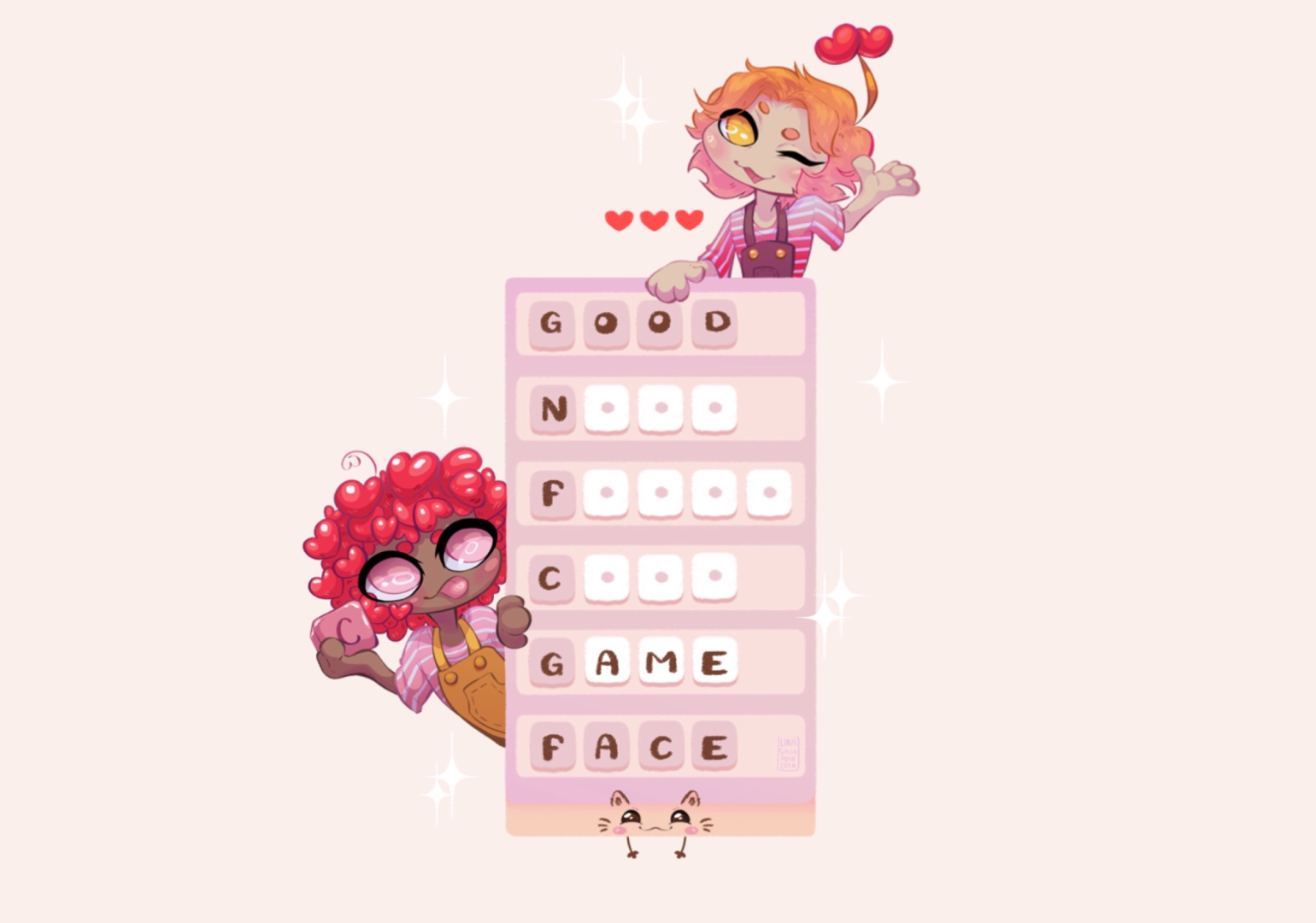
What started as a quick prototype has turned into a viral daily game and the glue of some family group chats. In my eyes, it’s still a prototype… I have a larger vision around games of this sort, lets call them newspaper games, that I’m still reasoning through. I’ll probably share more of my thinking on this topic in the future.
Last week, I shared Couples at the WordHack open mic. You can watch the video in the Couples WordHack entry. This entry will cover some of the details I share in the video, but I want to properly document Couples, some of the development process that led to its current form, and a few reminders.
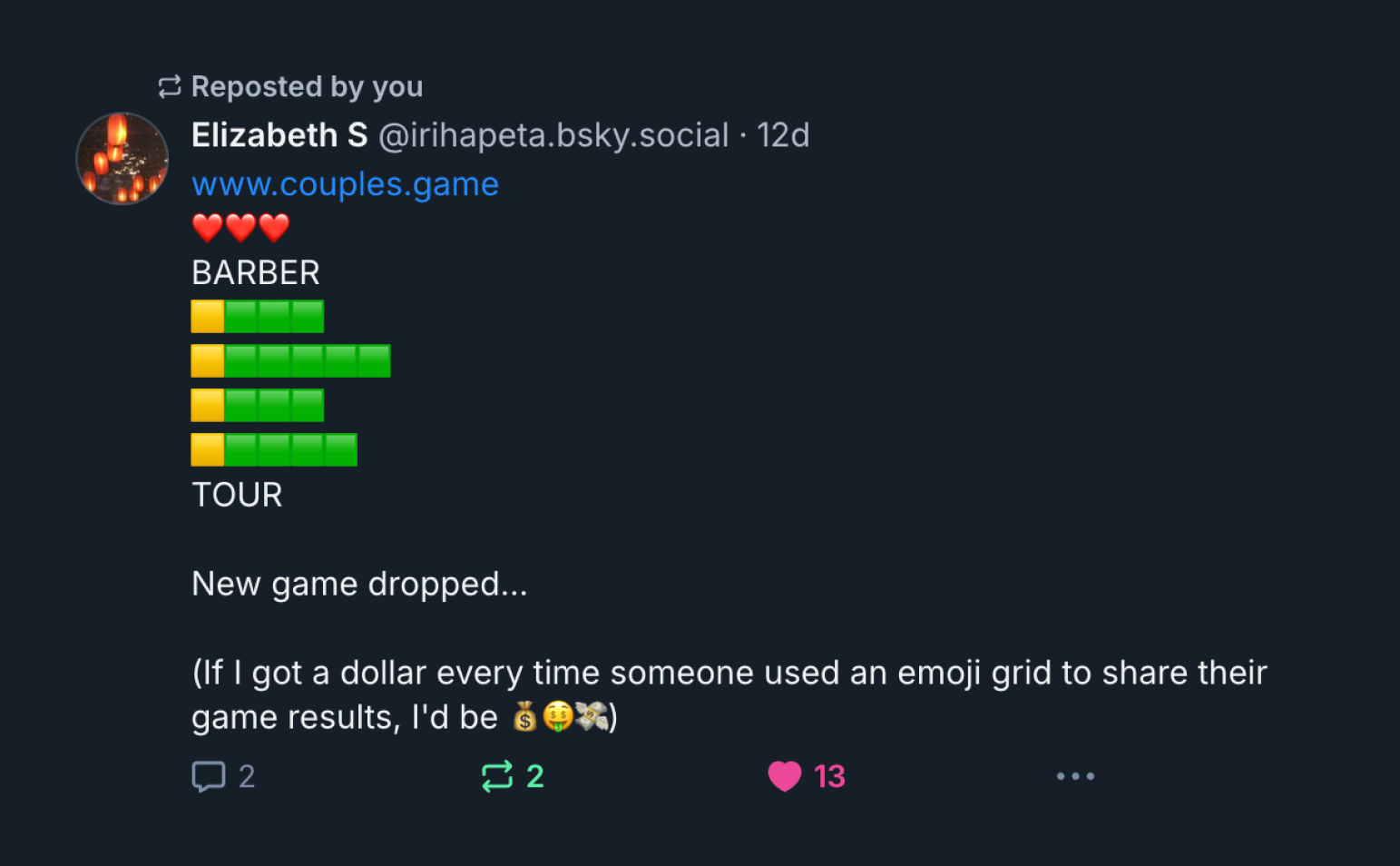
Elizabeth S. was the inventor of the emoji grid that led to Wordle going viral. Many other daily games use some variation of this system… including Couples. I’ll share how Couples eventually reached Elizabeth.
Xi and I were on our way to Jamaica for my friend Clint’s wedding, and she showed me a trend on TikTok and Instagram called word chains. It was originally a game from the show Chain Reaction.
I’m not going to act like I theorized and developed a set of principles before building the experience, although I have developed a set of principles that I’ll use for creating future games, which I’ll share in a different entry. Xi and I played around with a few permutations of the game on our flight, tweaking the mechanics with pen and paper. When we got back to New York, I built the output of our experimentation: 6 words, 3 sets of pairs, 3 lives.
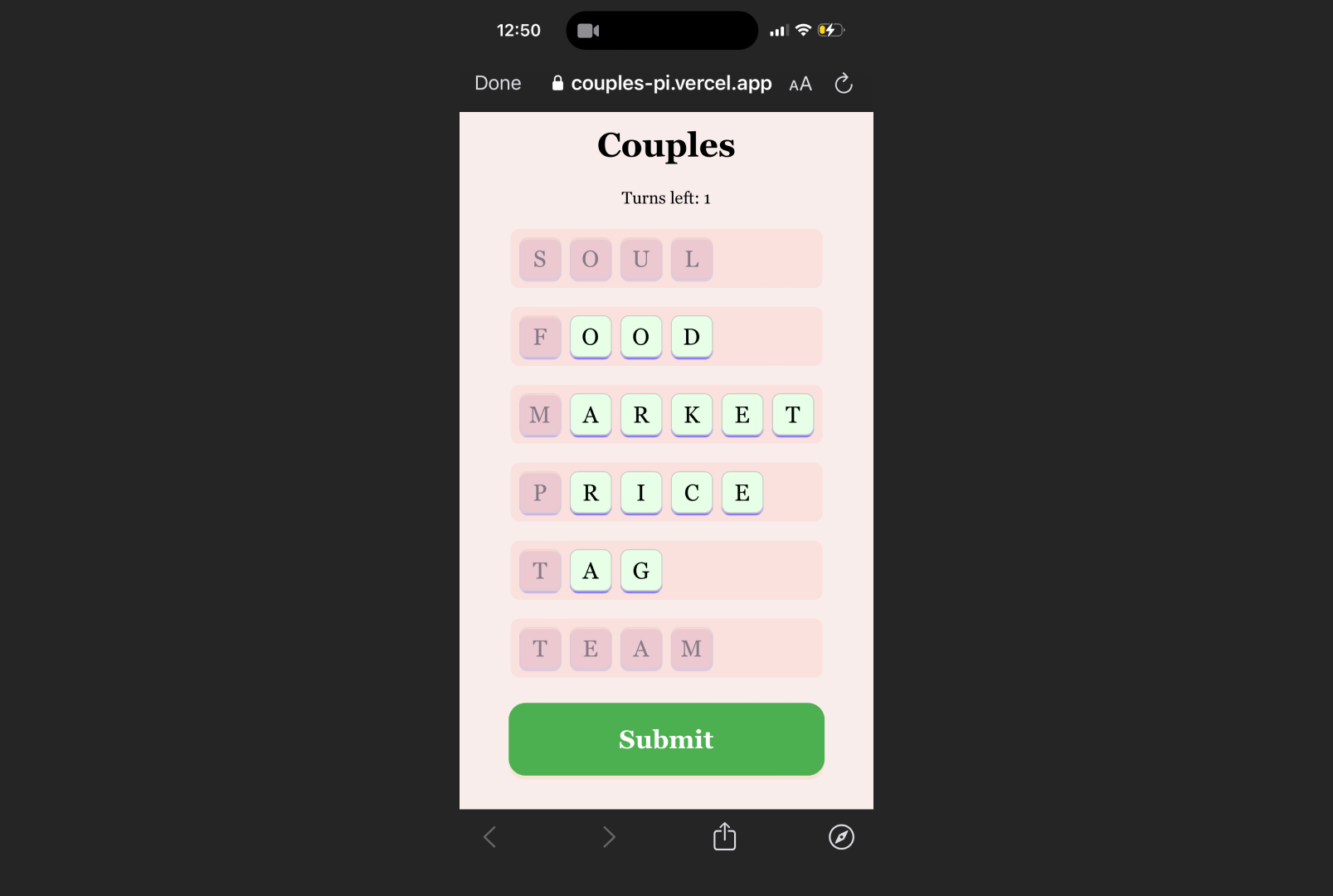
After a few hours of development, I deployed the game and texted it to Xi. She was a bit surprised at how quickly it came together. Above is an image of the first version of the game.
I’ve historically worked in cultures where we prioritize polishing the core interactions of an experience before understanding whether the core mechanic is fun. Given that this was a cute project that started between Xi and me, I didn’t feel those pressures, and I texted the game to a few close friends.
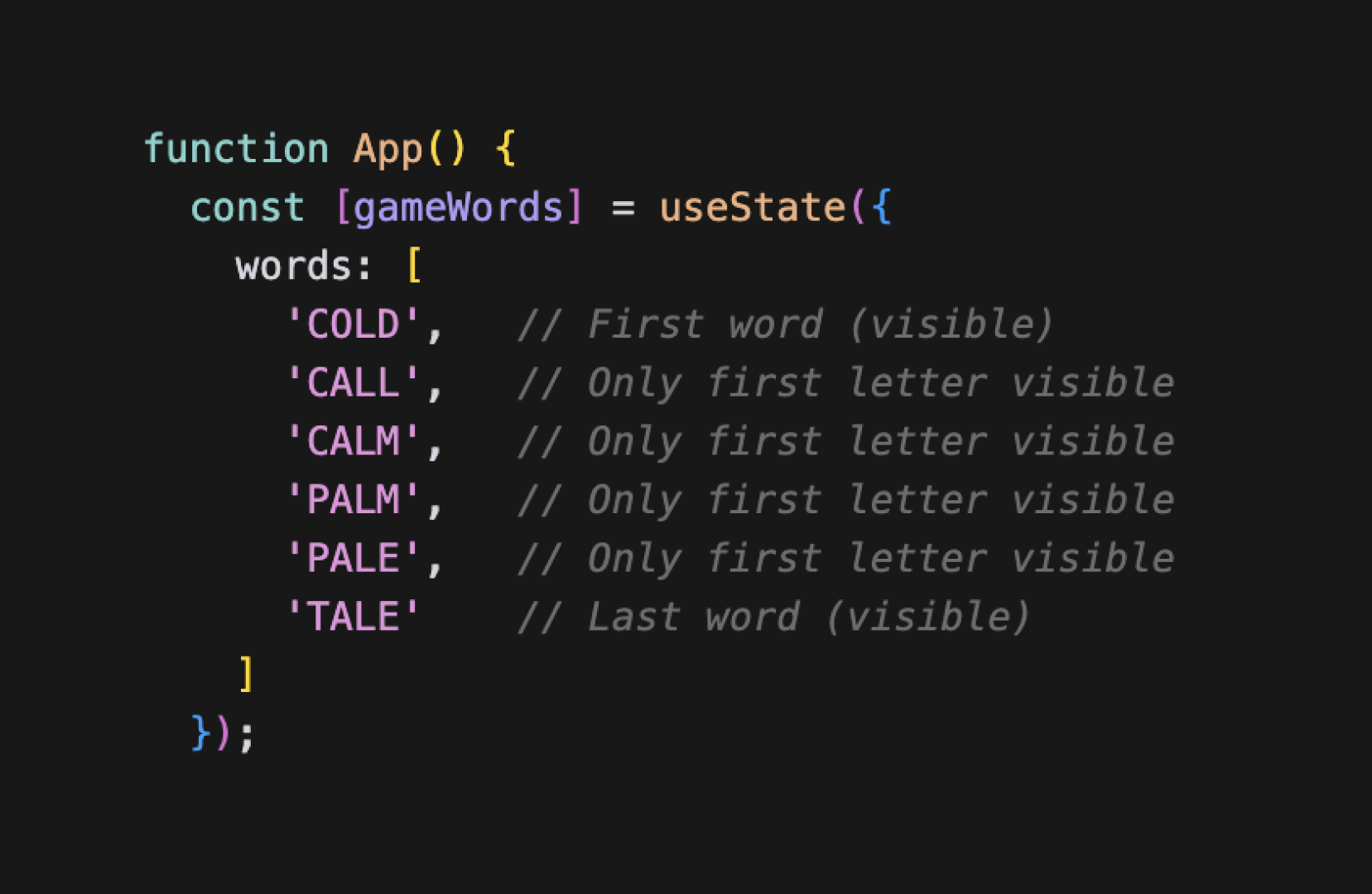
At this stage, the game was using manually entered puzzles. I wanted to create something that allowed both Xi and I to play. I used Claude Sonnet 3.5 to create a word list that I wouldn’t look at to manage the puzzles. It took a lot of context to get the system to the point where it generated puzzles that I didn’t have to edit.!Spoiler Alert! The puzzles below illustrate some of the first puzzles that an LLM generated. Eventually, it created over a year’s worth of puzzles, and the models continue to improve rapidly.
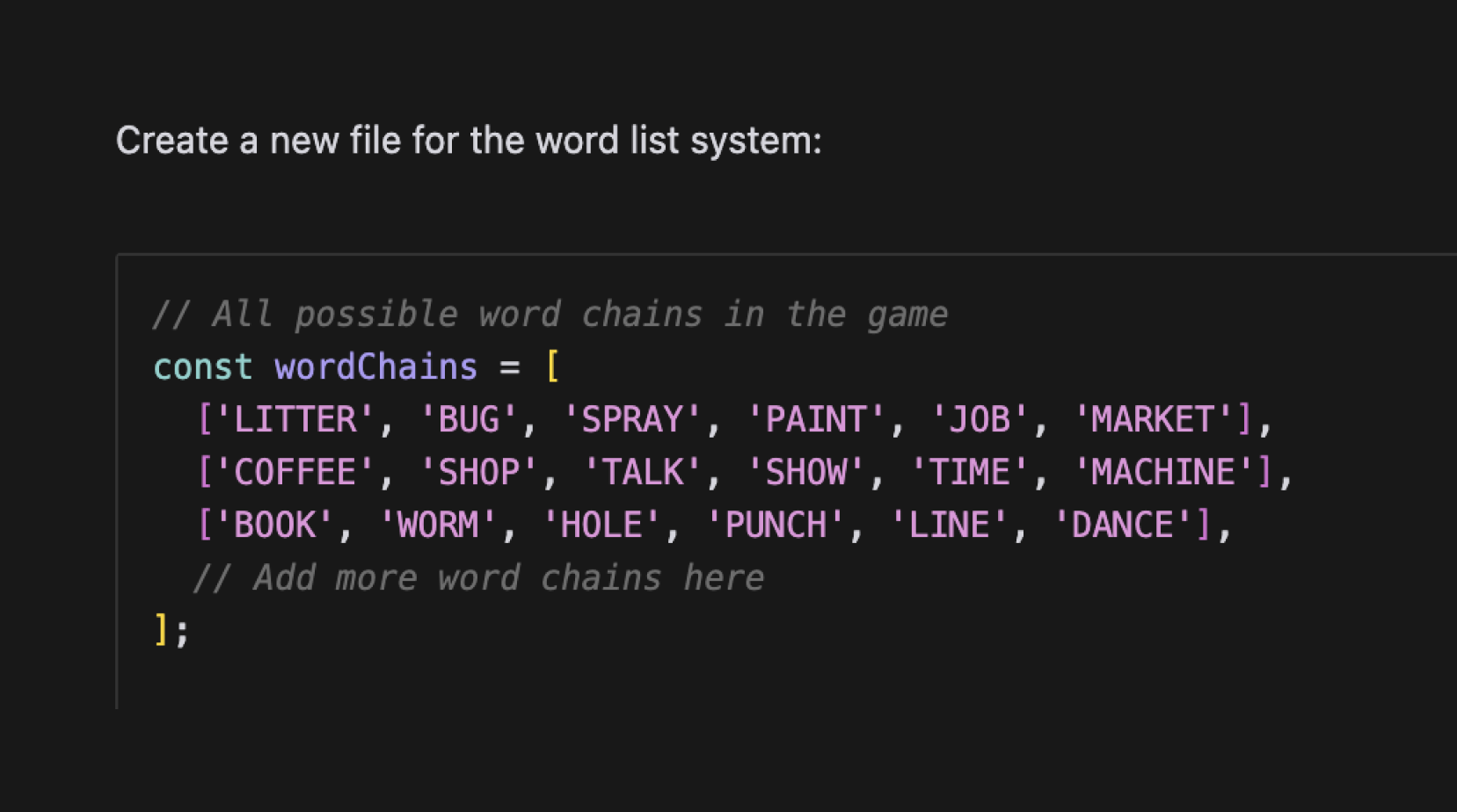
The game was finally at a point where it was serving puzzles from a massive archive that I did not create. So, I decided to share Couples with more friends.
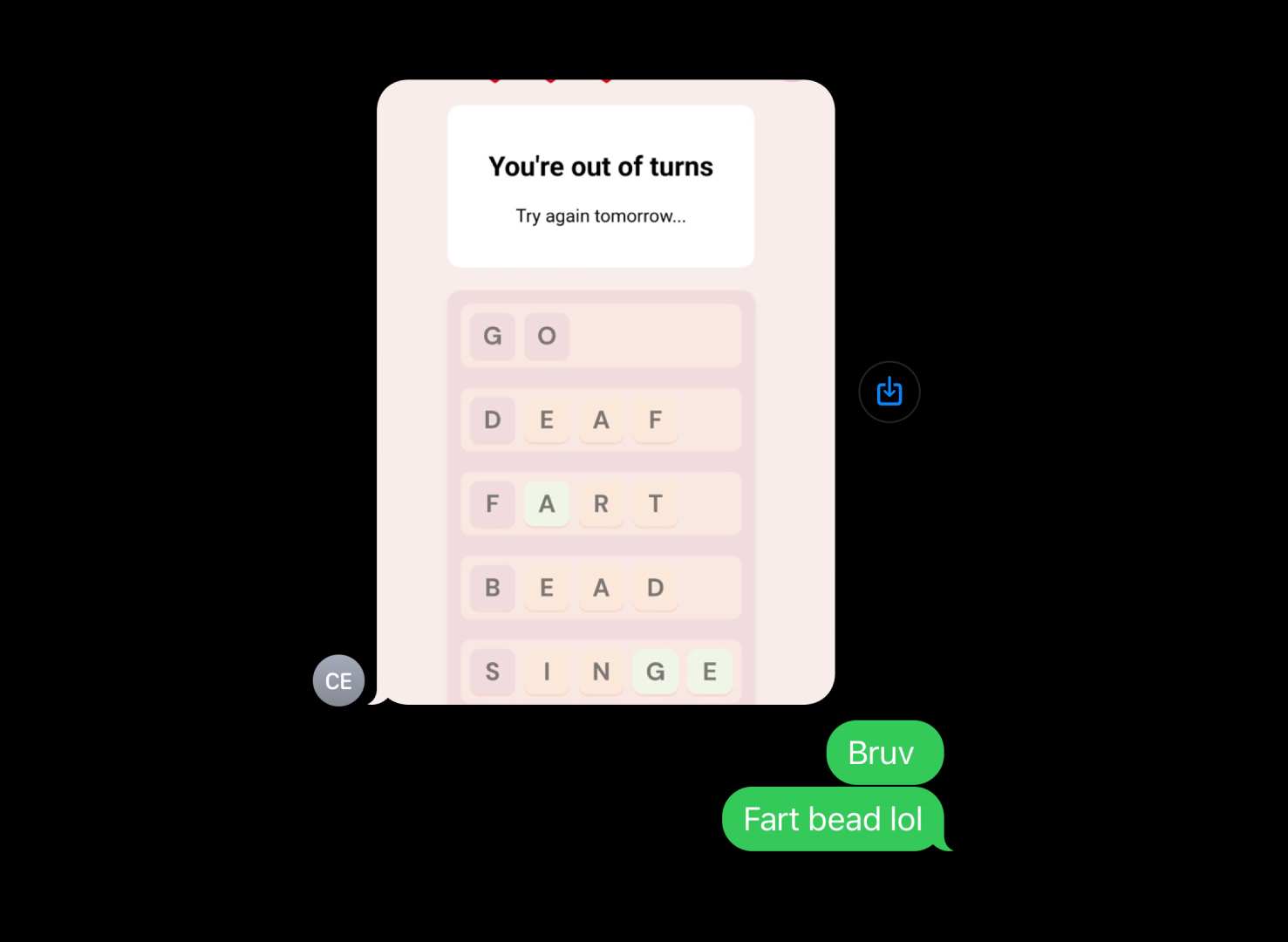
We quickly learned the instructions weren’t clear. Initially, the instructions were only text. People were throwing out guesses that reflected their inner thoughts. Friends sent refined versions of the instructions. People emailed asking if we’re looking for game writers. It was evident that people understood the rules once they saw the answers. I know this because people told us. But with a signal image, people could grasp the rules. I still want to refine how the rules are displayed… It’ll probably happen in a future release of the game. If people love your game, they will tell you how it can be improved.

Coincidentally, the tech workers at the New York Times had gone on strike after couples had been released. People were looking for alternative games to play as workers asked players not to cross the picket lines, as painful as it may be to break a streak. The timing of this was an unfortunate but exciting coincidence for the growth of the game, which eventually led to people posting videos of the game.
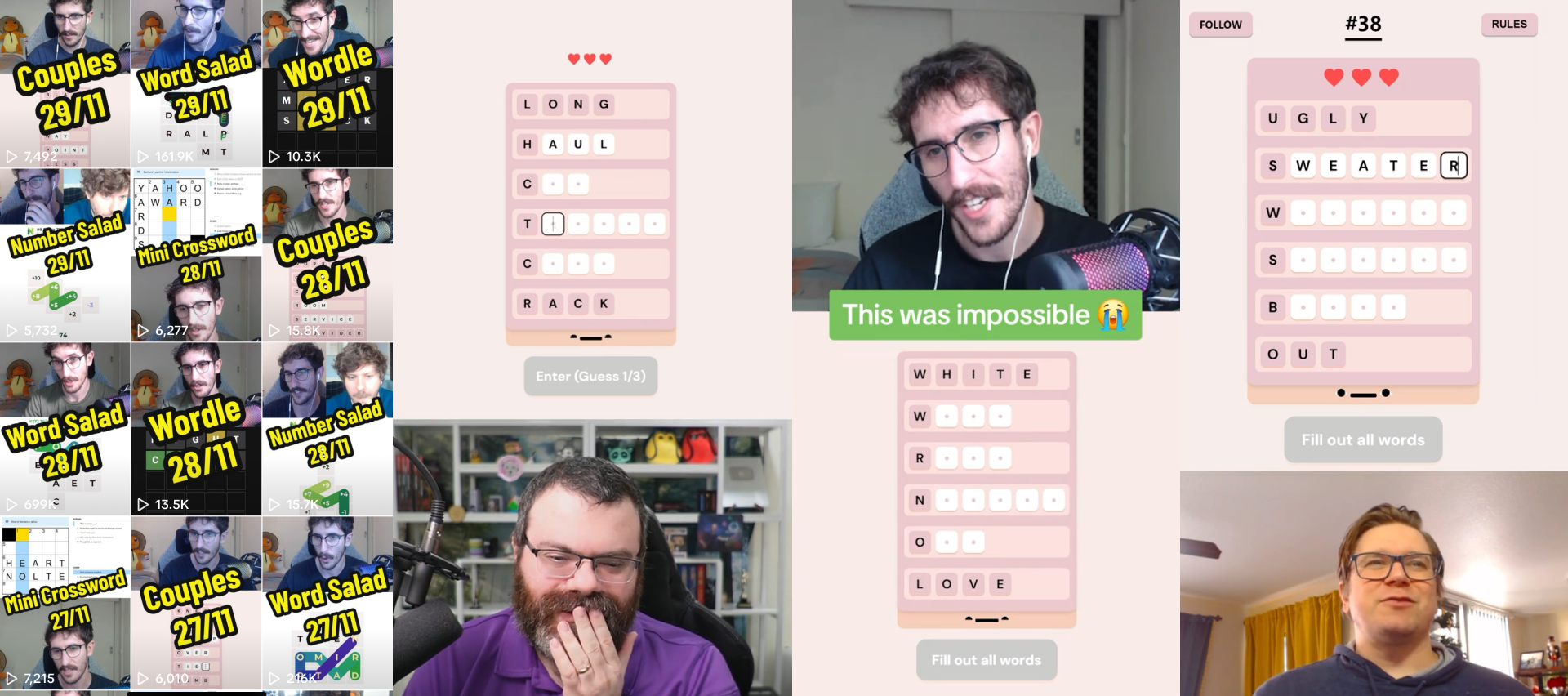
Wordtok is a community of people who share videos of themselves playing word games on Tiktok. They’ll usually crosspost to YouTube and Instagram. The first creator I found who posted Couples content was DataCrossPuzzles on YouTube. His videos led me to Wordtok, where I DM’d a few creators a link to Couples. That’s where I found Brian, a creator from Melbourne, who was consistently posting the game. He has quite a cult following. He talks to his community on Discord, where I found that his followers had quickly made Couples part of their daily routine.
Here are a few of my favorite Couple videos from Wordtok:
Couples 11-20 - @morebvnfire
Couples 11-21 - @rangsk.word.games
Couples 12-3 - @rangsk.word.games
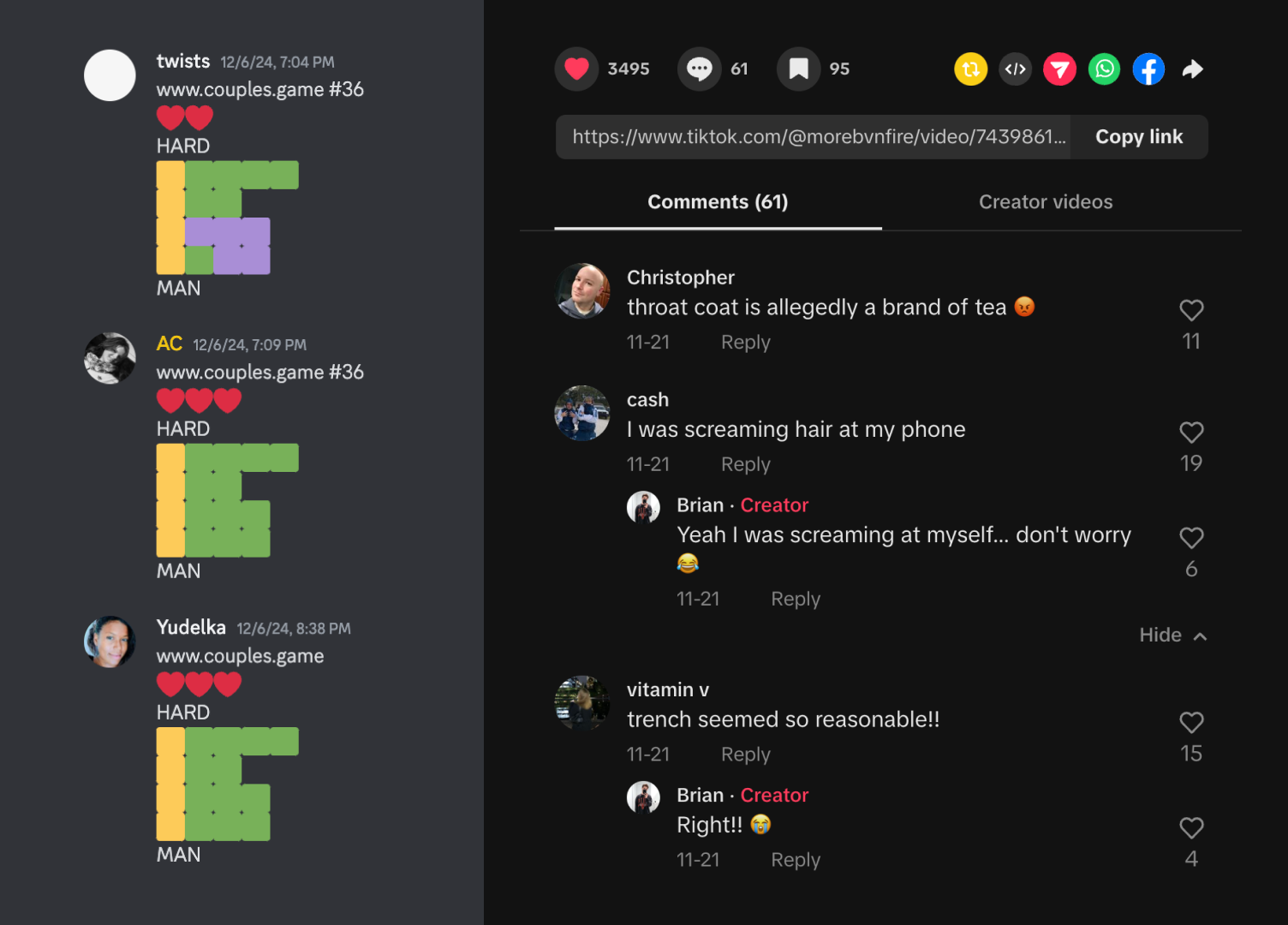
I also found a few people playing on TikTok Live. I was surprised to see this, considering TikTok live streamers generally stream neverending games to keep their viewers engaged. It feels like a dark abyss, but I understand the appeal. I found a streamer who was playing Couples because they heard about the game through people commenting on their video. I watched them play once and they said it wasn’t worth their time because there was only one puzzle a day. I chose to add archives after seeing this.
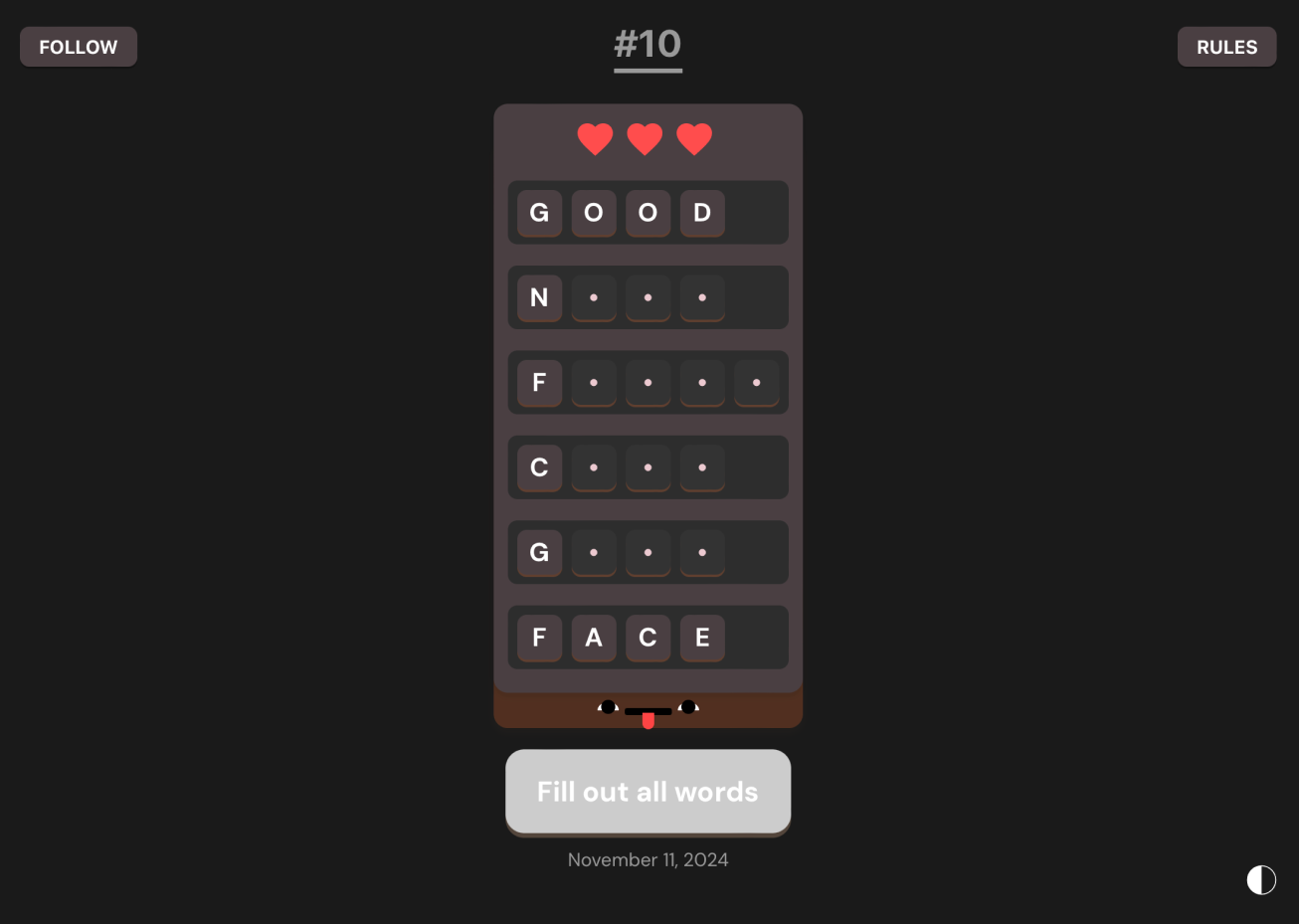
There’s nothing novel about archives, many daily games have something of this sort. I originally didn’t want to add them because Couples was meant to be a game that Xi and I would play once a day and nothing more. There’s something about hearing the comment on a livestream and some nudges from my mother that led to me finally building it. Since the archives were released, time spent has doubled, but retention has decreased slightly. It’s unclear if the decrease in retention is from people burning out playing archived puzzles, a bug caused by the archives, the novelty of Couples wearing off, or some other factor, but the feature was worth adding.
What's next
I’ve been prototyping a few directions of the game that make it easier for players to progress. Players often don’t submit their answer until they feel that they’ve gotten the entire puzzle correct. This dynamic emerged because the likely hood of a player getting the puzzle correct on the first turn is high given all of the words are connected. Wordle’s mechanic does a great job at helping players progress through the game because they have to submit a guess additional information that nudges them closer to the answer.
Couples will probably exist across a few platforms. A startup that’s focused on daily games copied the game. I was angered by it at first but it made me realize that there’s an opportunity to create a New York Times games competitor. Puzzmo is my favorite product in this realm but I believe there’s still a lot of room for something that’s more social and powered by LLMs.
I’m interested in what a multiplayer version of the game could be. Discord activities seems to enable many social features while also providing a distribution network that’s quite early. Josh Lu has a good write up on why Discord activities are important for the next wave of web games. At Castle, we’ve been working on features that will enable daily games like Couples. So a version of the game will exist in the Castle universe at some point.
Nothing beats a recognizable .com domain. Although Couples.games is a catchy, short, and cute URL, I noticed people have hard a hard time finding the domain because of how Couples.game renders in Google search. Couples.game also doesn’t quite depict a word game… I’m going to continue to making improvements to Couples, while developing other small games. I’ll have more to share soon in the realm of newspaper games…
The process has been a reminder of a few key points:
- Create something you use.
- Prototype and share early. A prototype doesn’t have to be software.
- Games that are fun with pen and paper have the potential to be really fun on computers.
- If people find your product interesting, they will send feedback. It’s a gift.
- Find a small but growing community of people who regularly use things like what you’re making.
- Word of mouth is the best form of marketing.
- I hope Tiktok doesn’t get banned in the US.
I’m going to introduce myself in every entry… so if you don’t already know, I’m Osebo, a Designer working on software for social networking, and tools for creating interactive media like games. If you want to learn more about more go here…